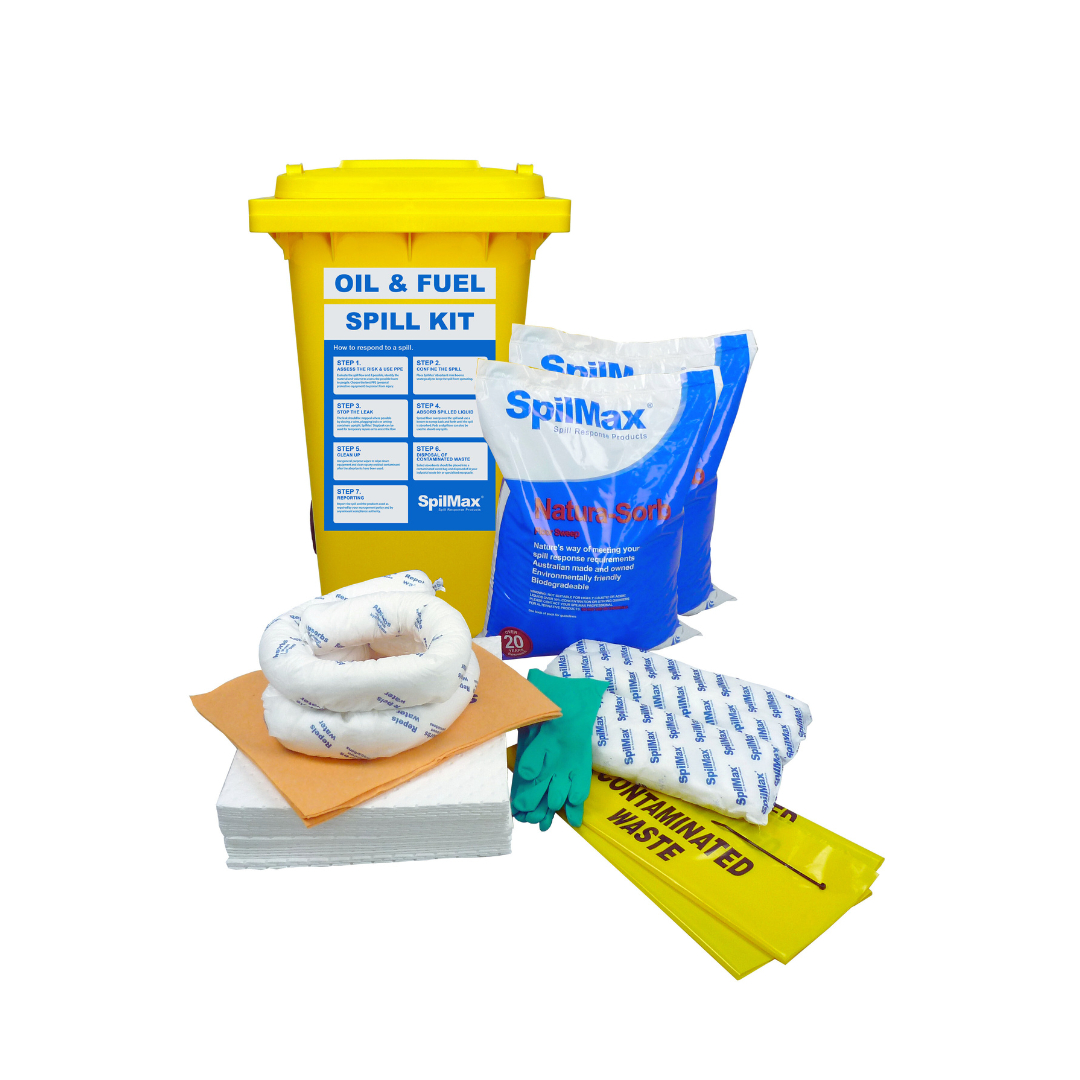In today’s industrial, commercial, and even residential environments, spill control is no longer optional—it is a critical component of environmental safety, legal compliance, and workplace protection. Akuna Spill control in Australia has become increasingly important due to strict environmental regulations, safety obligations, and the rising awareness of pollution prevention. Whether you manage a warehouse, factory, mine, laboratory, fuel station, or workshop, having the right spill containment and response solutions is non-negotiable.
This comprehensive guide explores everything you need to know about spill control in Australia, including types of spills, legal responsibilities, spill kit essentials, and how to choose the right spill management products.
Understanding Spill Control
Spill control refers to the strategies, equipment, and procedures used to prevent, contain, and clean up hazardous substances like oils, fuels, chemicals, coolants, and biohazards. In Australia, improper spill handling can result in severe environmental damage, hefty fines, workplace injuries, and business shutdowns.
A proactive spill control plan involves:
-
Prevention (storage and handling practices)
-
Containment (using bunding and barriers)
-
Response (having the right spill kits and trained personnel)
-
Recovery (proper disposal and environmental restoration)
Types of Spills and Risk Areas
1. Oil and Fuel Spills
Common in transport depots, service stations, mining operations, and heavy equipment yards. Hydrocarbon spills can contaminate soil and waterways quickly.
2. Chemical Spills
Hazardous chemical leaks may occur in labs, manufacturing facilities, and processing plants. These spills can be toxic, corrosive, or flammable.
3. Biohazard Spills
Includes medical and biological waste spills in hospitals, aged care homes, or veterinary clinics, requiring specific containment and cleanup procedures.
4. Water-Based Spills
Coolants, detergents, and non-toxic liquids can still pose slip hazards and operational risks if not properly managed.
Australian Spill Control Regulations
Australia enforces strict environmental protection laws through agencies such as:
-
EPA (Environmental Protection Authority) – State-based bodies with powers to fine and enforce clean-up orders
-
Safe Work Australia – Provides national guidelines on hazardous chemical handling
-
Australian Standards (AS1940, AS/NZS 3833) – Cover the storage and handling of flammable and combustible liquids
Non-compliance with these standards may lead to:
-
Environmental contamination penalties
-
Legal action or prosecution
-
Increased insurance premiums
-
Loss of business licenses
Having spill kits, bunding, and a site-specific spill response plan is essential for meeting these requirements.
Spill Kits in Australia: What’s Inside?
Spill kits are pre-packed kits designed to clean and manage different types of spills effectively. They are mandatory for most workplaces that store or use hazardous substances.
Types of Spill Kits
-
General Purpose Spill Kits: For water-based liquids and non-corrosive substances.
-
Oil and Fuel Spill Kits: Hydrophobic absorbents target hydrocarbons while repelling water.
-
Chemical Spill Kits: For acids, alkalis, and other hazardous chemicals.
-
Marine Spill Kits: Designed for offshore and coastal applications.
Common Spill Kit Contents
-
Absorbent pads and booms
-
Safety gloves and goggles
-
Containment socks
-
Disposal bags and ties
-
Dustpans and scoops
-
Instruction manual and spill response guide
-
Emergency signage
Spill Containment Products in Australia
1. Bunding and Spill Pallets
Contain leaks and drips from drums and IBCs (Intermediate Bulk Containers). Options include:
-
Polyethylene bunds for chemical resistance
-
Steel bunds for flammable liquids
-
Portable bunding for mobile containment
2. Drain Protection
Drain covers, plugs, and mats prevent spills from entering stormwater systems and local waterways.
3. Absorbents
Available in various formats—pads, rolls, granules, booms—for immediate spill absorption. Choose based on liquid type and volume.
4. Spill Response Trailers
For large-scale or remote area operations, mobile trailers house bulk spill equipment for rapid deployment.
Industries That Rely on Spill Control
-
Mining and Resources
-
Transport and Logistics
-
Agriculture and Horticulture
-
Construction and Civil Engineering
-
Energy and Utilities
-
Manufacturing and Warehousing
-
Marine and Port Operations
Every industry handling liquids or chemicals needs a tailored spill control solution to mitigate environmental, financial, and safety risks.
Choosing the Right Spill Kit or Solution
When selecting spill control equipment in Australia, consider:
-
Type and quantity of liquids on site
-
Storage conditions (indoors/outdoors)
-
Proximity to drains or waterways
-
Number of employees and shifts
-
Mobility needs (static kits vs portable units)
Work with a reputable Australian spill control supplier who understands EPA requirements, offers AS-compliant products, and provides training and support.
Spill Response Training and Readiness
A spill kit is only effective if your team knows how to use it. Australian businesses should invest in:
-
Spill response training sessions
-
Regular drills and site inspections
-
Labelled and easily accessible spill kits
-
Clear SOPs and spill response charts
Preparedness reduces downtime, injury risk, and the cost of environmental cleanup.
Why Spill Control is an Investment, Not an Expense
Implementing proper spill control measures in your Australian facility is not just about compliance—it protects:
-
Staff safety
-
Your brand and reputation
-
The surrounding environment
-
Your business from legal and financial harm
Choosing professional-grade spill containment solutions is one of the smartest decisions for future-proofing your operation.
Trusted Spill Control Products and Suppliers in Australia
Australia is home to many leading spill control providers offering:
-
AS/NZS-compliant spill kits and accessories
-
Onsite spill assessments
-
Emergency response services
-
Spill response training and certification
-
Eco-friendly absorbent alternatives
Whether you need a custom spill plan, on-site consultation, or rapid delivery, choose a supplier who understands your industry and regulatory requirements.
